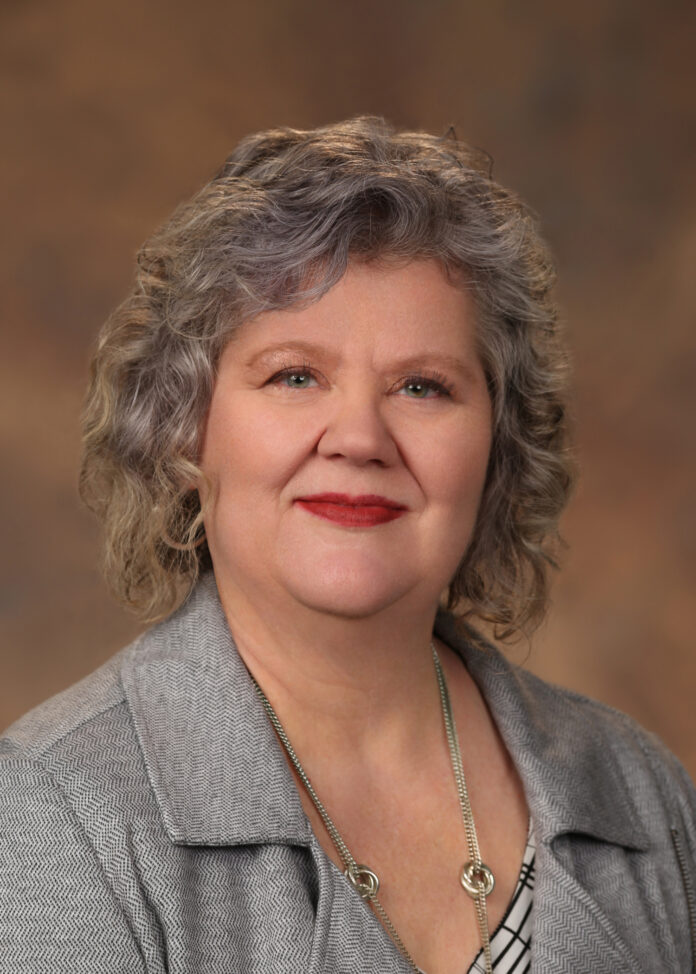
By Carol A. Cates, MSN, MBA, RN
Chief Nursing Officer
Odessa Regional Medical Center
The New Year is a time where many people think about the future. I have never been much of a “New Year’s Resolution” person, but this year I am thinking more about the things I need to get done in the near future. I think that is because of my father.
My dad became a widower the second time a few years ago and has decided in the next few months he needs to move on to the next stage in his life. He wants to move to a smaller home with less upkeep and closer to his kids (my brothers and me). Because of that, over the holidays we started planning.
House hunting, downsizing with furniture, and putting his house on the market are just a few of the things we started working on. As we were talking about all the things that needed to be done, we also started talking about some of the legal aspects of the changes in his life since he is moving to a different state. It started me thinking about how we all need to plan for the unexpected when it comes to health care decisions with the legal aspects and talking to our families about them.
One of the best things my mom did for us as a family before she passed away was to let us know exactly what she wanted when it came to end-of-life decisions. When she was no longer able to make decisions for herself, we never had to guess what she wanted.
During the course of my career, I have seen so many families agonize over end-of-life decisions. I have seen some families become irreparably damaged because they cannot come to an agreement on what their loved one wanted done at the end of their life. I know end-of-life conversations can be extremely difficult, but if you get into a situation where you cannot speak for yourself, that conversation will save your loved ones a great deal of pain when they are asked to make them.
The other thing to think about with end-of-life care is for the medical professionals, in a life-or-death situation, every second counts. That means, unless they are told up-front immediately on arrival what your wishes are, they have to start life saving efforts. Even if that’s not what you want. Having those conversations ahead of time with your loved ones can avoid that issue as well.
Equally important to the family discussion about end-of-life decisions is having legal documentation to support your decision. This will make sure that your health care providers know your decisions when there is no one else available.
You can give copies of those documents to your primary health care provider, your preferred hospital, and any other members of your healthcare team so they know your wishes in advance of any emergency. The legal documents for end-of-life care and decision making when you cannot make those decisions for yourself fall into a group of documents called “Advance Directives.” You can consult an attorney to help you with those documents, or The Texas Health and Human Services Commission has several advance directive forms that you can download for free on their website at www.hhs.texas.gov/formas/advance-directives.
That website also has how to fill out the forms and how to have them legally witnessed. There are several advanced directive forms you can use.
First is a “Declaration for Mental Health Treatment (DMHT).” That form allows you to make decisions about mental health care including psychoactive medications, convulsive therapies, and emergency mental health treatment. This form is only used if a court of law believes you are incapable of making treatment decisions. If you are capable, you will be asked to make those decisions at the time for yourself.
Second is the “Directive to Physicians and Family or Surrogates.” This is the form that helps you communicate your medical treatment when you are not able to make those decisions for yourself. This primarily applies to end-of-life decisions but can also be used in any situation where you might not be able to make decisions for yourself, such as a coma from illness or injury.
The next is a “Medical Power of Attorney (MPOA).” This form designates a specific person to make decisions on your behalf when it comes to healthcare and treatment when you can not make those decisions for yourself. An MPOA does not give any financial power of attorney. It also does not go into effect until you cannot make decisions for yourself.
The fourth form is an “Out-of-Hospital Do-Not-Resuscitate (OOH-DNR)” order. This form instructs EMS providers and other health care professionals to not resuscitate you in the event of a cardiac arrest. This does not affect any other aspects of emergency care or comfort care.
The final form is a “Statutory Durable Power of Attorney (SDPOA).” This is the form that designates someone to manage your property should you not be able to make decisions for yourself. An SDPOA does not allow that person to make healthcare decisions.
If you have not had end-of-life decisions with your family and do not have any or all of the various advanced directives in place, I strongly encourage you to do so. This is not an “old person” issue. Any one of use could be faced with making or having decisions made with us because of the unexpected. Please consider adding family discussions and advanced directives to your plans this year. I hope and pray you will not have to use them, but this is one area where it’s a very good idea to plan ahead.
I hope you and yours have a Happy and Safe New Year!



